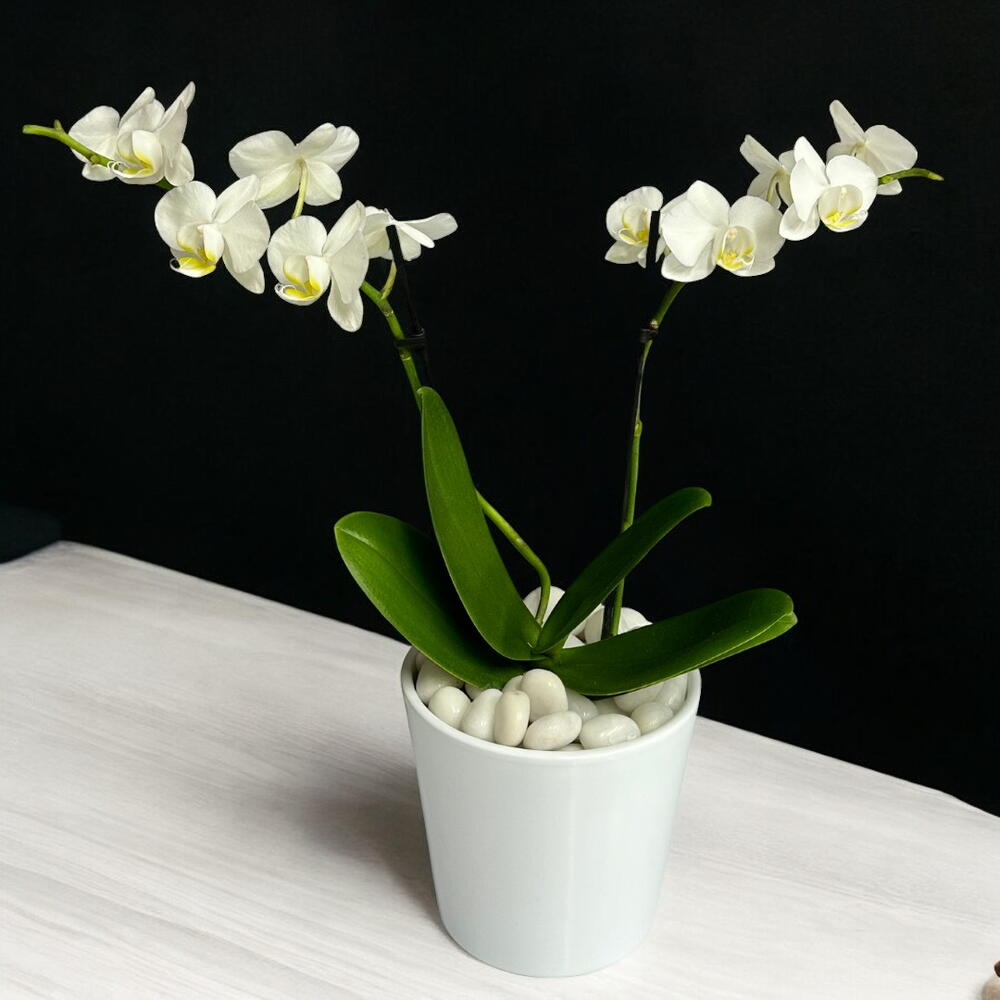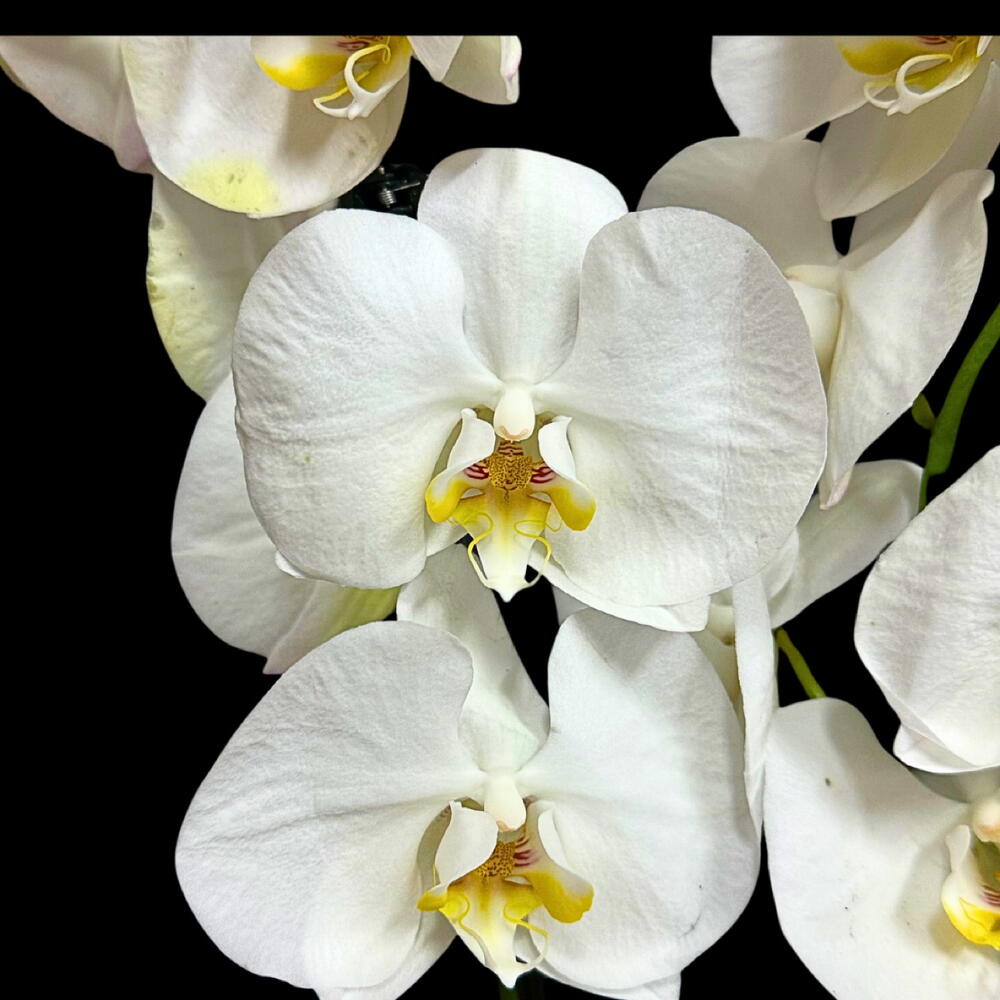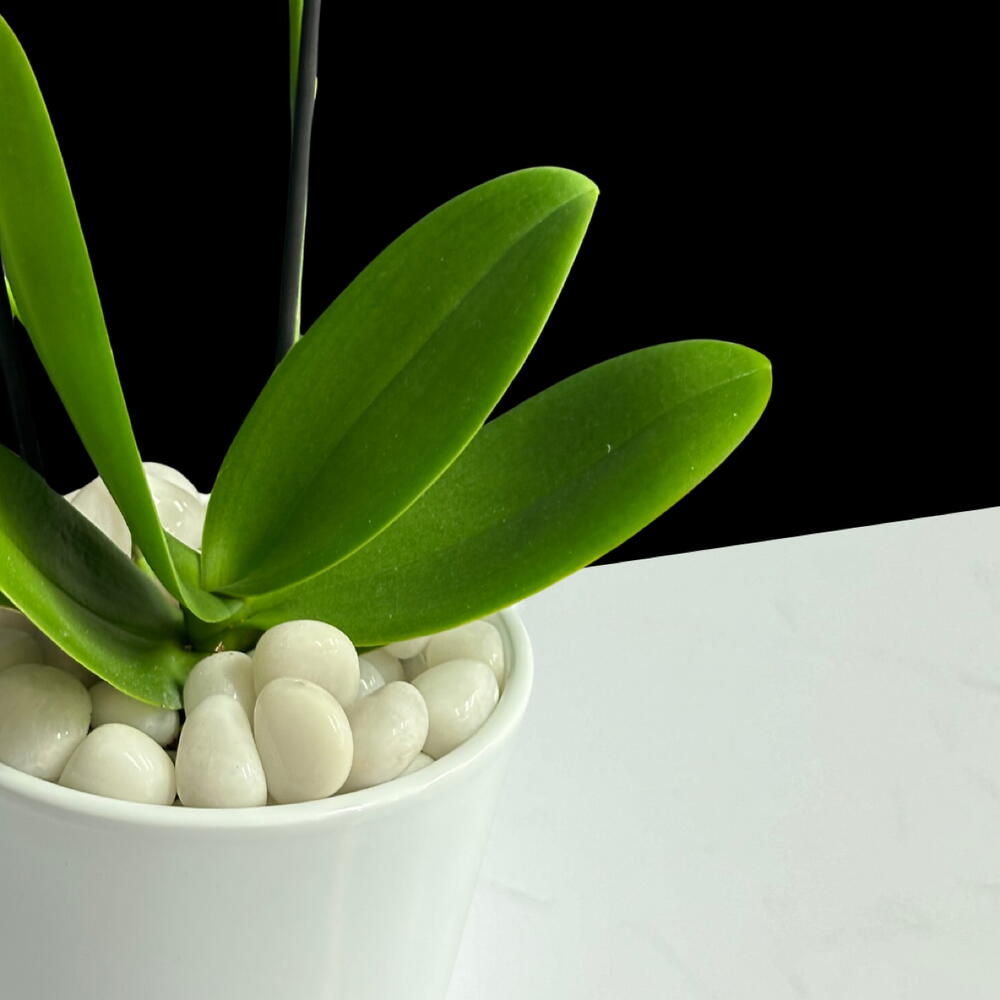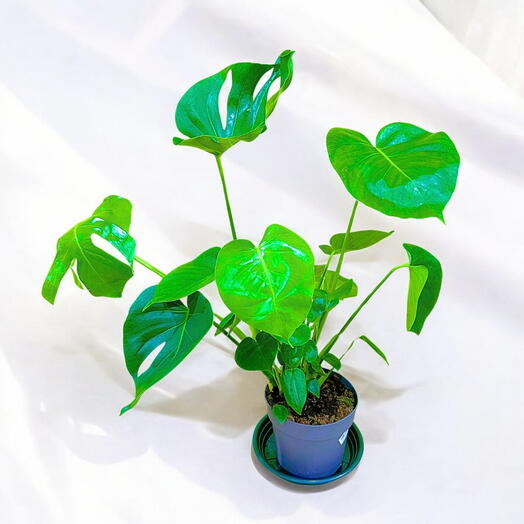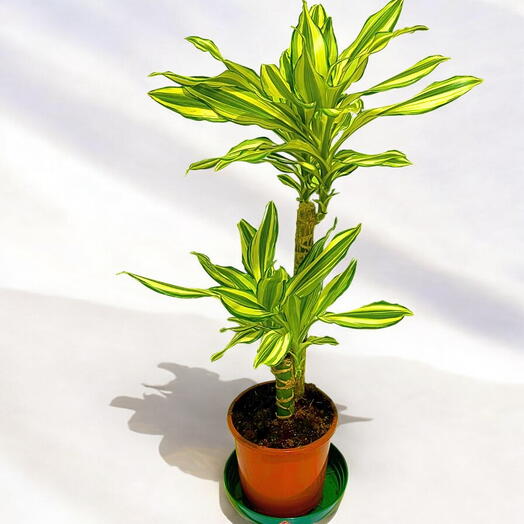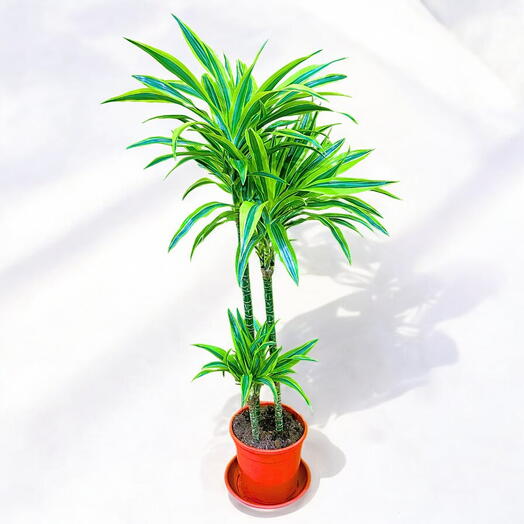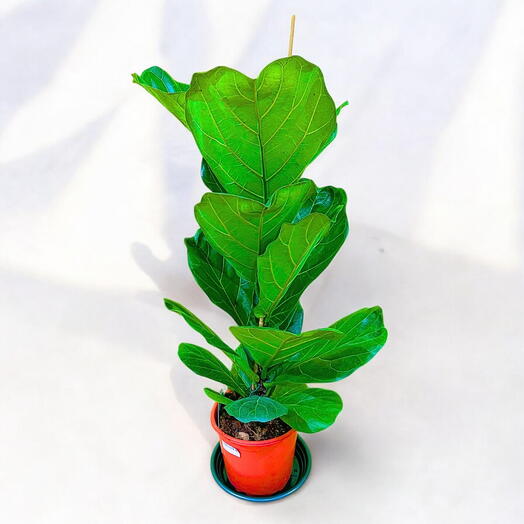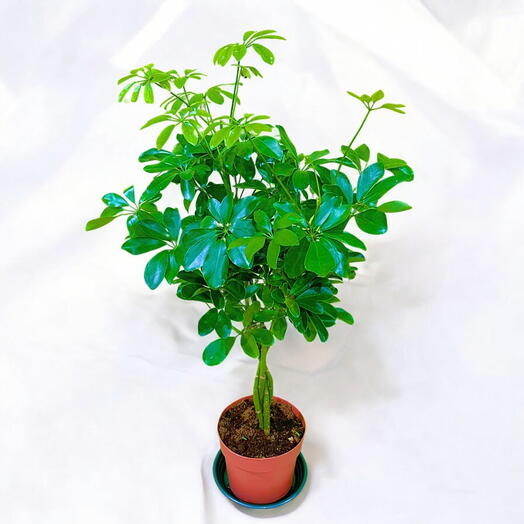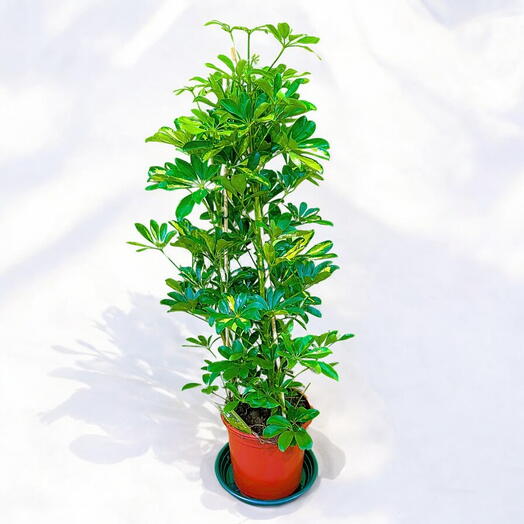Erre a termékre már más is rákeresett
Phalaenopsis orchids, commonly known as moth orchids, are renowned for their elegant and striking appearance.
Gondozási ajánlások
Taking care of Phalaenopsis orchids, commonly known as moth orchids, involves several key aspects to ensure they thrive: 1. **Lighting**: Phalaenopsis orchids prefer bright, indirect light. Avoid direct sunlight, especially during the hottest parts of the day. A north or east-facing window is usually ideal. If natural light is insufficient, you can supplement with a grow light designed for orchids. 2. **Temperature and Humidity**: Phalaenopsis orchids prefer temperatures between 65-75°F (18-24°C) during the day and slightly cooler at night. They also appreciate humidity levels around 50-70%. To increase humidity, you can place the orchid pot on a humidity tray filled with water and pebbles, or use a room humidifier. 3. **Watering**: Watering is crucial but should be done sparingly. Water your Phalaenopsis orchid when the potting medium feels dry to the touch, typically every 7-10 days. Water thoroughly, allowing water to drain freely from the bottom of the pot. Avoid letting the orchid sit in standing water, as this can lead to root rot. 4. **Potting Medium and Repotting**: Use a well-draining orchid potting mix, such as a blend of bark chips and sphagnum moss. Repot your orchid every 1-2 years, or when the potting medium breaks down and becomes soggy. Use a pot that allows for good drainage. 5. **Fertilizing**: Feed your Phalaenopsis orchid regularly during the growing season (spring and summer) with a balanced orchid fertilizer (20-20-20 or similar) diluted to half strength. Fertilize every 2-4 weeks. Reduce or stop fertilizing during the dormant season (fall and winter). 6. **Air Circulation**: Good air circulation is important for preventing fungal and bacterial infections. Ensure there is adequate ventilation around your orchid, especially in humid environments. 7. **Pruning and Maintenance**: Remove spent flower spikes by cutting them back to the base when the flowers drop. Trim any yellow or dead leaves or roots to maintain plant health. 8. **Pest Control**: Keep an eye out for common orchid pests like aphids, scale, or spider mites. Treat any infestations promptly with appropriate insecticidal soap or horticultural oil.
White Phalaenopsis small Indoor plant
- és kiderítjük a szállítási költségeket
- Ön kapni fog 5.97 Bónusz
A növényt már átültették. A vásárlás után nem kell újraültetni
Időszakos locsolás
2-szer a hét
Méret
- Szélesség - 18 cm
- Magasság - 40 cm
Phalaenopsis orchids, commonly known as moth orchids, are renowned for their elegant and striking appearance.
Gondozási ajánlások
Taking care of Phalaenopsis orchids, commonly known as moth orchids, involves several key aspects to ensure they thrive: 1. **Lighting**: Phalaenopsis orchids prefer bright, indirect light. Avoid direct sunlight, especially during the hottest parts of the day. A north or east-facing window is usually ideal. If natural light is insufficient, you can supplement with a grow light designed for orchids. 2. **Temperature and Humidity**: Phalaenopsis orchids prefer temperatures between 65-75°F (18-24°C) during the day and slightly cooler at night. They also appreciate humidity levels around 50-70%. To increase humidity, you can place the orchid pot on a humidity tray filled with water and pebbles, or use a room humidifier. 3. **Watering**: Watering is crucial but should be done sparingly. Water your Phalaenopsis orchid when the potting medium feels dry to the touch, typically every 7-10 days. Water thoroughly, allowing water to drain freely from the bottom of the pot. Avoid letting the orchid sit in standing water, as this can lead to root rot. 4. **Potting Medium and Repotting**: Use a well-draining orchid potting mix, such as a blend of bark chips and sphagnum moss. Repot your orchid every 1-2 years, or when the potting medium breaks down and becomes soggy. Use a pot that allows for good drainage. 5. **Fertilizing**: Feed your Phalaenopsis orchid regularly during the growing season (spring and summer) with a balanced orchid fertilizer (20-20-20 or similar) diluted to half strength. Fertilize every 2-4 weeks. Reduce or stop fertilizing during the dormant season (fall and winter). 6. **Air Circulation**: Good air circulation is important for preventing fungal and bacterial infections. Ensure there is adequate ventilation around your orchid, especially in humid environments. 7. **Pruning and Maintenance**: Remove spent flower spikes by cutting them back to the base when the flowers drop. Trim any yellow or dead leaves or roots to maintain plant health. 8. **Pest Control**: Keep an eye out for common orchid pests like aphids, scale, or spider mites. Treat any infestations promptly with appropriate insecticidal soap or horticultural oil.
Értékelések és visszajelzés
inessa
Szeptember 2024
Все понравилось!
Panasztétel az adott termékre
